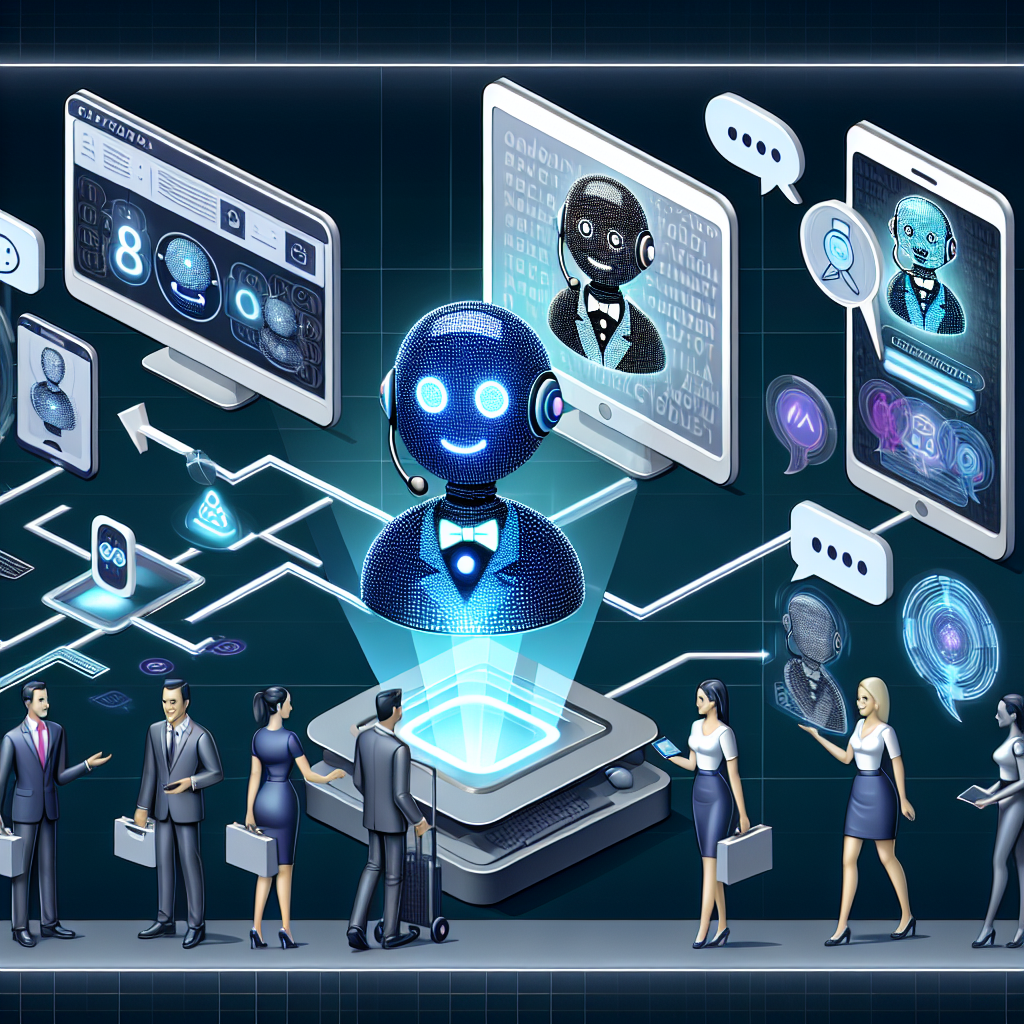The Evolution of AI in Customer Service: From Chatbots to Virtual Assistants
Artificial intelligence (AI) has revolutionized the way businesses interact with their customers, especially in the realm of customer service. From simple chatbots to sophisticated virtual assistants, AI has transformed the customer service experience, making it more efficient, personalized, and convenient for both businesses and consumers.
Chatbots: The Beginning of AI in Customer Service
The evolution of AI in customer service can be traced back to the introduction of chatbots. Chatbots are computer programs that simulate human conversation using natural language processing (NLP) technology. They are designed to handle basic customer service inquiries, such as answering frequently asked questions, providing product information, and assisting with simple tasks like resetting passwords.
Chatbots are typically deployed on websites, messaging apps, and social media platforms, where they can engage with customers in real-time. They are available 24/7, providing immediate assistance to customers and reducing the need for human intervention. Chatbots are also cost-effective for businesses, as they can handle a large volume of inquiries simultaneously without the need for additional staff.
Virtual Assistants: The Rise of Personalized Customer Service
As AI technology has advanced, virtual assistants have emerged as the next evolution in customer service. Virtual assistants are AI-powered software programs that can interact with customers in a more sophisticated and personalized manner. They are capable of understanding natural language, learning from interactions, and adapting to individual preferences and behaviors.
Virtual assistants can perform a wide range of tasks, from answering complex inquiries and providing personalized recommendations to scheduling appointments and processing transactions. They can also integrate with other systems and platforms, such as customer relationship management (CRM) software and e-commerce platforms, to provide a seamless and cohesive customer experience.
Virtual assistants are often deployed on websites, mobile apps, and smart devices, such as smart speakers and virtual reality headsets. They can engage with customers through voice commands, text-based chat, and visual interfaces, making it easier for customers to interact with businesses and access information and services.
The Benefits of AI in Customer Service
The evolution of AI in customer service has brought a number of benefits to businesses and consumers alike. Some of the key benefits include:
1. Improved efficiency: AI-powered chatbots and virtual assistants can handle a large volume of inquiries simultaneously, reducing the need for human intervention and speeding up response times.
2. Personalized interactions: Virtual assistants can learn from customer interactions and adapt to individual preferences and behaviors, providing a more personalized and tailored customer experience.
3. 24/7 availability: Chatbots and virtual assistants are available 24/7, allowing businesses to provide round-the-clock customer service and support to their customers.
4. Cost savings: AI-powered customer service solutions are cost-effective for businesses, as they can handle a large volume of inquiries without the need for additional staff.
5. Enhanced customer satisfaction: AI-powered customer service solutions can provide faster, more accurate, and more personalized responses to customer inquiries, leading to higher levels of customer satisfaction.
FAQs
Q: What is the difference between chatbots and virtual assistants?
A: Chatbots are computer programs that simulate human conversation using natural language processing technology, while virtual assistants are AI-powered software programs that can interact with customers in a more sophisticated and personalized manner.
Q: How can businesses benefit from using AI in customer service?
A: Businesses can benefit from using AI in customer service by improving efficiency, providing personalized interactions, offering 24/7 availability, saving costs, and enhancing customer satisfaction.
Q: How can customers interact with AI-powered customer service solutions?
A: Customers can interact with AI-powered customer service solutions through voice commands, text-based chat, and visual interfaces on websites, mobile apps, and smart devices.
Q: Are AI-powered customer service solutions secure?
A: AI-powered customer service solutions are designed with security in mind, using encryption, authentication, and other security measures to protect customer data and ensure privacy.
In conclusion, the evolution of AI in customer service has transformed the way businesses interact with their customers, making the customer service experience more efficient, personalized, and convenient. From chatbots to virtual assistants, AI-powered customer service solutions offer a wide range of benefits for businesses and consumers alike. By leveraging the power of AI, businesses can provide faster, more accurate, and more personalized customer service, leading to higher levels of customer satisfaction and loyalty.

